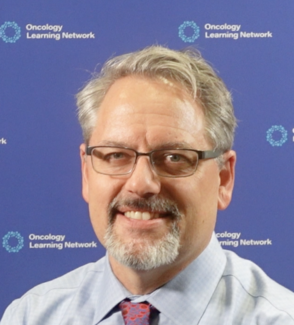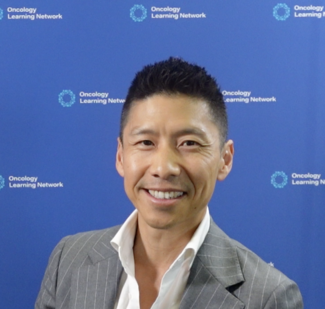Dual-Target CAR T-Cell Therapy Demonstrates Promising Response Rates for R/R LBCL
Krish Patel, MD, Sarah Cannon Research Institute, Nashville, Tennessee, discusses the results from a phase 1b trial evaluating the safety and efficacy of JNJ-90014496, a novel CD19/CD20 bispecific chimeric antigen receptor (CAR) T-cell therapy, for the treatment of relapsed/refractory (R/R) large B-cell lymphoma (LBCL) who previously received at least 2 lines of therapy.
These data were presented at the European Hematology Association (EHA) 2025 Congress in Milan, Italy, as well as at the International Conference on Malignant Lymphoma (ICML) conference in Lugano, Switzerland.
The results of this analysis demonstrated efficacy and safety for JNJ-90014496 for patients who have R/R LBCL. Dr Patel stated, “The take-home message is that targeting 2 antigens, CD19 and CD20, which is how this CAR T-cell is designed, looks to be having very deep responses and the product looks to be very safe.”
Transcript:
My name is Krish Patel. I'm the director of lymphoma research for the Sarah Canon Research Institute, and it's my pleasure to tell you about study results from the phase 1b study of JNJ-90014496. This is a study to look at the safety and preliminary efficacy of a CD19-CD20 targeting autologous CAR T-cell in patients with large B-cell lymphoma.
These data were presented at the International Conference on Malignant Lymphoma (ICML) conference in Lugan this summer and summarize the experience of patients treated to date in this study.
I'll highlight for you that overall, this study looked at a variety of different dosing approaches for this CAR T-cell in patients with relapsed/refractory large B-cell lymphoma who'd had at least 2 prior lines of therapy. Initially, this study looked at weight-based dosing and then shifted towards a fixed dose approach.
The primary objectives of the study were to look at safety and to find the recommended phase 2 dose for this CAR T product, with secondary objectives to identify preliminary efficacy including complete response rate, overall response rate, and define some of the pharmacokinetics.
At a very high level, the study presented data on 51 patients with relapse refractory LBCL. These were primarily patients who had had 1 line of therapy or more. The median number was 1, but about 40% of the patients had had 2 lines of prior therapy. Most patients ultimately did receive bridging therapy on the study.
To give a high level of the safety that we saw, we know that CAR T-cell therapies can be associated with cytokine release syndrome. That was 1 of the most common adverse events seen, but was fortunately low grade in most cases, primarily grade 1 and grade 2. In terms of neurologic toxicities, which can be seen with CAR T-cells, fortunately this was also relatively infrequent. So overall, all comers around about 15% in the fixed dose that was presented at 75 million CAR T-cells, very low there, just around under 10%. Very few high-grade neurologic toxicities were noted.
What is really exciting about this study is the preliminary efficacy signal across the board. We saw a very high overall response rate in the 90% or so region, and most of these responses were complete responses. Approximately 75% of patients who were evaluable for response had a complete response, so a deep response at an early time point. The study is still ongoing, so studying the ultimate duration of response in many of these patients. There are some patients now in the study out more than a year with ongoing complete responses, and at roughly the 6-month mark looks to be just about 2 thirds or more of patients who achieved a response maintaining that response at the fixed dose of 75 million cells, which is being taken forward.
A lot of excitement from this initial study, more study to come to define ultimately what the exact safety profile and efficacy for this CAR T product looks like. Take home message is that by targeting 2 antigens, CD19 and CD20, which is how this CAR T cell is designed, look to be having very, very deep responses and the product looks to be very safe.
Time will tell us how this stacks up in comparison to CD19 alone targeting CAR T-cells, which are currently approved for DLBCL, but the preliminary data presented certainly is I think very promising.
Source:
Patel K, Rhodes J, Mountjoy L, et al. A global phase 1b study of JNJ-90014496, A CD19/CD20 bi-specific chimeric antigen receptor (CAR) T-cell therapy, in patients (PTS) with relapsed/refractory (R/R) large b-cell lymphoma (LBCL). Presented at EHA 2025 Congress. June 12-June 15, 2025; Milan, Italy. Abstract 4159316.















